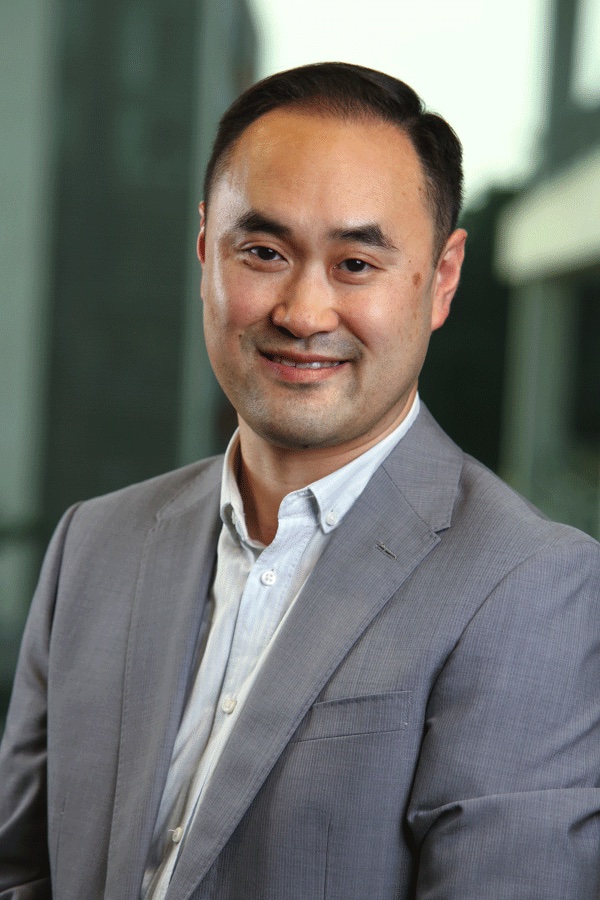
Philip Chung is a DTP Board member and highly valued DTP trainer. He is the Executive Director of the Australasian Legal Information Institute (AustLII), a joint facility of UNSW and UTS Faculties of Law, and an Associate Professor of Law at the University of New South Wales.
Philip has been contributing his time to DTP as a trainer for over two decades. He also serves on DTP’s board, contributing to the organisation’s strategic direction.
“I support DTP’s objective, what it is trying to achieve. I particularly like DTP’s approach to working at the grass-root level. Over the years, it has developed targeted, customised and impactful training programs. If you look at the DTP alumni, the impact is amazing, where they are now and what they have achieved. Yes, I am very excited and happy to be associated with DTP and now as a board member.”
Philip’s research interests are the intersection of IT, law, human rights and social justice. In leading AustLII, he emphasises access to justice, the rule of law and social justice.
“I also like to explore the use of technology, the impact of technology on human rights, and how technology can help. My interest and DTP’s area of work fits quite well.”
Philip values DTP’s approach to human rights training and appreciates the commitment and motivations of the human rights advocates participating in the DTP’s programs.
“As a trainer, it is always amazing to see the effort of the participants when we are doing the face-to-face program. They pass through administrative hurdles like getting visas and need to catch several flights to be at the training venue. It shows their passion and commitment to human rights.”
Especially 10-15 years ago, the Internet was not as accessible as it is now and training using the Internet was challenging. Philip particularly remembers one program when the computer training room was an old shipping container, there was a limited power supply and the weather was scorching. Participants could choose between power for air conditioning or their computers and the internet connection.
“All delegates chose the computers and internet so they could learn better. It was a tough situation. Every 5-10 minutes, some participants had to leave the room to get a breath of fresh air, and cool down before returning to the classroom. That session always stayed in my mind. It also inspired and motivated me. It was a fascinating example of how the participants valued the opportunity to improve their research, campaign and advocacy skills. They said they learnt something from that session despite sweating.”
In Philip’s opinion, that’s where human rights work is. There are always obstacles and challenges, but people rise to the occasion. They are not well resourced, but work with what they have and, “they believe they can achieve a lot if you put your mind to it and work together.”
Philip believes human rights are becoming more and more important, in a sense because many decisions that are being made now will have a future impact on human rights, whether it is related to climate change, Indigenous issues or business and human rights.
This gives DTP a unique opportunity to build a future generation of rights advocates in the Asia-Pacific region by training advocates with DTP’s core value – peoples’ diplomacy.
“We don’t even know yet about the implications that are coming. So the more grassroots organisations that are aware and prepared on human rights the better. They can then spot human rights issues that need attention. Peoples’ diplomacy – the core of DTP will become more useful in the coming context.”
Philip believes that DTP will develop skills for a lot more people over time, benefiting the work they do and their organisations now – and into the future. Some DTP participants will end up in places where they will be the decision-makers, and hopefully, they will be more appreciative of the human rights framework.
“So I feel that there are many exciting times and opportunities for DTP ahead.”
DTP acknowledges the traditional custodians of the land on which we work, the Bedegal people of the Eora Nation. We recognise their lands were never ceded, and we acknowledge their struggles for recognition and rights and pay our respects to the Elders – past, present – and the youth who are working towards a brighter tomorrow. This continent always was and always will be Aboriginal land.
Aboriginal and Torres Strait Islander peoples should be aware that this website contains images or names of people who have passed away.
DTP acknowledges the traditional custodians of the land on which we work, the Bedegal people of the Eora Nation. We recognise their lands were never ceded, and we acknowledge their struggles for recognition and rights and pay our respects to the Elders – past, present – and the youth who are working towards a brighter tomorrow. This continent always was and always will be Aboriginal land.
Aboriginal and Torres Strait Islander peoples should be aware that this website contains images or names of people who have passed away.
Privacy Policy | Terms of Use | Disclaimer | Policies
© 2022 Diplomacy Training Program | ABN 31 003 925 148 | Web Design by Studio Clvr